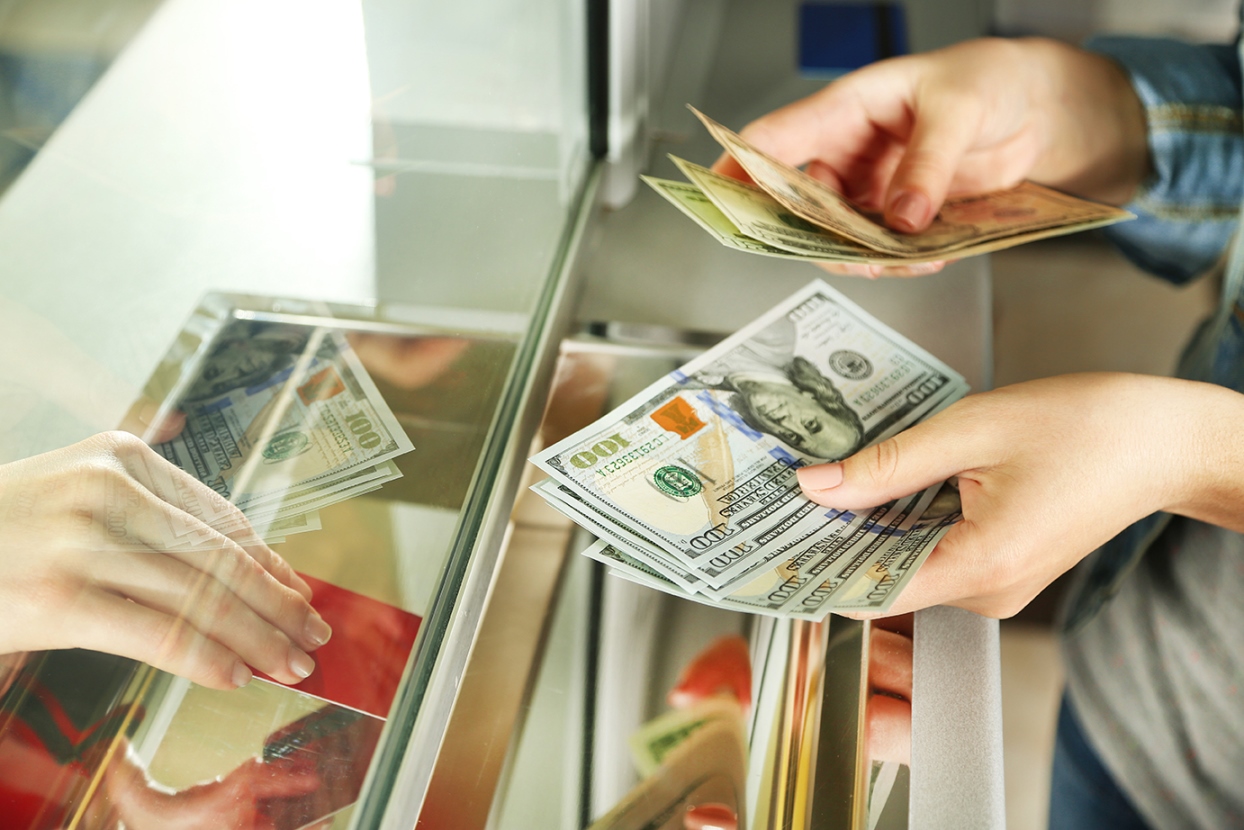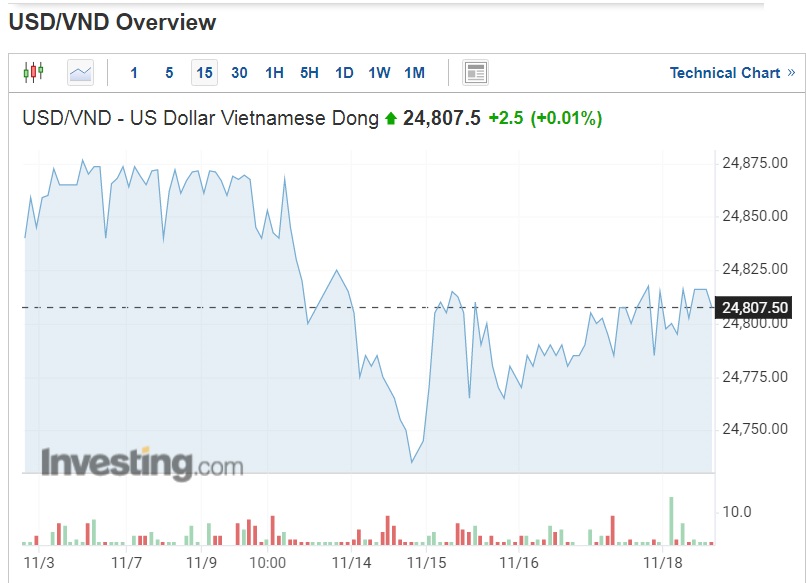USD/VND rate could be "cool down"
Many financial experts think that the FED's scaled-back rate hike will soon help the USD/VND rate "cool down."

The reference rate at the SBV's Exchange in the Vietnam market also decreased to 22,245- 24,860 dong.
>> Hedging against exchange rate risk
Exchange rate continues to weaken
FED Vice Chairman Lael Brainard noted that the Fed raised interest rates swiftly and that it takes time for this monetary tightening to have an effect on the economy. According to Ms. Lael Brainard, by undertaking rate hikes at a more cautious pace, the FED can examine more economic data and can modify the interest rate properly to control inflation.
There is widespread consensus among experts that the FED will only increase interest rates by 0.5% at its meeting on December 13–14. Because, the US CPI consistently decreased from 9.1% in June to 7.7% in October, allowing the FED to scale back its rate hike.
In light of this, the USD lost more ground. On November 17 (Vietnam time), the US Dollar Index was down 0.14% at 106.26 points at the start of trading. The reference rate at the SBV's Exchange in the Vietnam market also decreased to 22,245- 24,860 dong.

USD/VND is in downtrend
Flexible response
Experts advise import and export enterprises to protect themselves against currency rate risk regardless of which way the exchange rate fluctuates. But when companies purchase FX forward contracts, they must pay far more for USD than it is currently worth. Because the difference in the VND and USD deposit rates is what determines the price of USD between the present and the future. The bid for the USD futures contract will rise in line with the fact that the USD deposit rate is now at 0% and the VND interest rate is progressively rising. Therefore, while deciding whether to utilize the right hedging instruments, businesses must balance currency swings with the price of USD futures.
>> Exporters advised to minimise headwinds of currency volatility
Dr. Le Xuan Nghia, financial analyst stated that each company's decision will affect its ability to sell foreign currency. Due to the business cycle, companies are unable to hold on to USD indefinitely; instead, they must sell it in order to purchase the raw materials for future production. The businesses may sign a USD call option contract at some point in the future if foreign currency is needed in the future. They can purchase USD at a cheaper price on the contract's expiration date to eliminate the risk of exchange rates.
According to Dr. Le Xuan Nghia, to reduce currency rate risks, the majority of foreign exporters currently choose FX call options contract.








